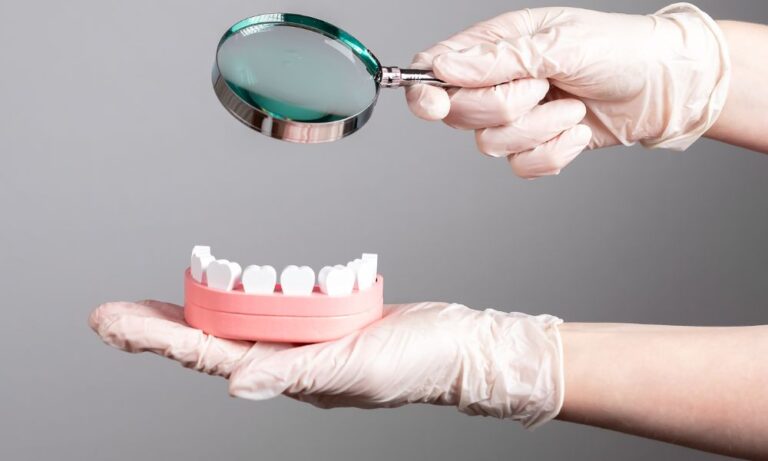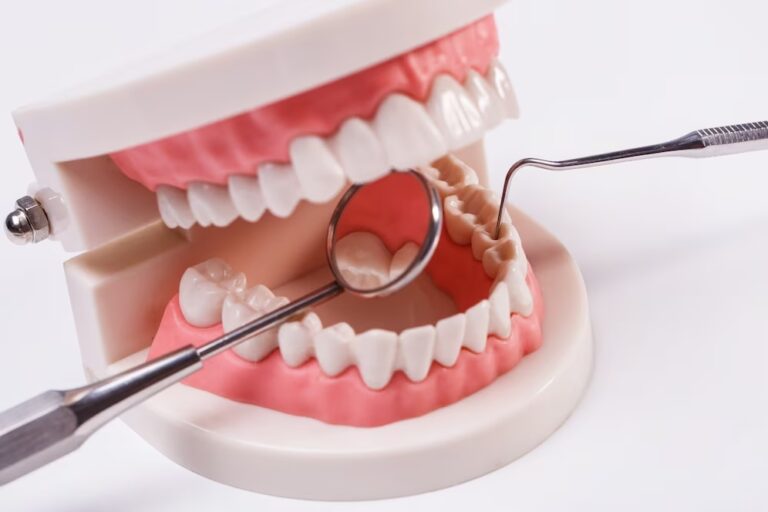Having healthy gums is essential to keeping our mouths in good shape. Gums support our teeth and protect against bacteria. When our gums are in trouble, it can lead to pain and bigger problems. This makes gum care super important. Knowing how to maintain healthy gums can help us have bright and strong smiles.
In Northglenn, it’s crucial for us to stay on top of our gum health. We face common issues like gum disease, which can cause bleeding, swelling, and even tooth loss. By understanding these problems and how to prevent them, we can keep our gums healthy. Simple daily habits and some extra care can make a big difference.
Let’s dive into some top tips for healthy gums this year and see how we can protect our smiles. Whether it’s daily brushing and flossing or making regular visits to our dentist, there are many ways to ensure our gums stay healthy. Following these tips will help us enjoy better oral health and a beautiful smile.
I. Understanding the Importance of Gum Health
The Role of Gums in Overall Oral Health
Gums play a big role in keeping our teeth in place and acting as a barrier against bacteria. They cushion our teeth and bone, protecting them from damage. Healthy gums keep our teeth stable, making it easier to chew food and speak clearly.
Common Gum Issues and Their Impact
Gum disease, also known as periodontal disease, is a common problem. It starts with gingivitis, causing redness and swelling. Without treatment, it can become periodontitis, leading to pain, tooth loss, and even bone damage. Other issues include receding gums, which make teeth look longer and can be painful.
Why Focusing on Gum Health Is Crucial
By focusing on gum health, we prevent these problems and improve our overall well-being. Healthy gums mean fewer infections and less pain. They also support our jawbone and help us keep our natural teeth longer. Good gum care is a key part of having a healthy mouth and a beautiful smile.
II. Daily Habits for Maintaining Healthy Gums
The Basics of Brushing and Flossing
Brushing and flossing are the foundation of good gum care. We should brush our teeth twice a day, using a soft-bristled toothbrush to avoid hurting our gums. Using fluoride toothpaste helps fight cavities. Flossing once a day removes food particles and plaque from between our teeth, which our toothbrushes can’t reach.
Choosing the Right Toothbrush and Toothpaste
A soft-bristled toothbrush is gentle on our gums. Electric toothbrushes can be even more effective. Fluoride toothpaste helps strengthen our teeth and protect against decay. Some toothpastes are made especially for gum health and can reduce inflammation.
The Benefits of Using Mouthwash
Mouthwash adds an extra layer of protection by killing bacteria that brushing and flossing might miss. Antibacterial mouthwash can reduce plaque and help prevent gum disease. Using mouthwash daily keeps our breath fresh and boosts our overall gum health.
The Impact of a Balanced Diet on Gum Health
Eating a balanced diet rich in vitamins and minerals supports gum health. Crunchy fruits and vegetables like apples and carrots help clean our teeth while we eat. Foods high in vitamin C, like oranges, support gum tissue. Avoiding too much sugar helps keep decay at bay.
Avoiding Harmful Habits Like Smoking and Excessive Sugar Intake
Smoking is harmful to gums, causing diseases and slowing down healing. Quitting smoking greatly improves gum health. Limiting sugary foods and drinks reduces the risk of cavities and gum disease. Sticking to water, milk, and healthy snacks keeps our gums and teeth strong.
III. Advanced Preventive Measures for Gum Care
Regular Dental Check-Ups and Professional Cleanings
Seeing our dentist regularly is key to maintaining healthy gums. We should schedule cleanings at least twice a year. During these visits, the dentist removes plaque and tartar that brushing and flossing can’t handle. Cleanings keep our gums healthy and catch any issues early.
Identifying Early Signs of Gum Disease
Knowing the signs of gum disease helps us take action quickly. We should look for red, swollen, or bleeding gums. Bad breath and loose teeth are also warning signs. If we notice any of these, it’s important to visit our dentist right away. Early treatment prevents further damage.
Understanding Non-Surgical Treatments for Gum Health
Non-surgical treatments can help manage gum disease. Scaling and root planing are deep-cleaning methods that remove plaque and tartar below the gumline. Antimicrobial treatments can reduce bacteria and inflammation. These options are less invasive and can effectively restore gum health.
The Importance of Dental Sealants and Fluoride Treatments
Dental sealants and fluoride treatments protect our teeth and gums. Sealants cover grooves in our teeth, preventing food and bacteria from getting stuck. Fluoride strengthens enamel and helps prevent decay. Both treatments are quick and painless, making them excellent options for added protection.
IV. Creating a Personalized Gum Care Routine
Assessing Individual Gum Health Needs
Each of us has different gum health needs. Assessing our current gum condition helps us develop the right care routine. Our dentist can provide a detailed evaluation, highlighting areas that need extra attention. Knowing these needs allows us to create a more effective plan.
Setting Realistic and Achievable Gum Care Goals
Setting clear, realistic goals helps us maintain healthy gums. Goals can include brushing twice a day, flossing daily, and reducing sugary snacks. We should aim for small, manageable steps that fit into our daily lives. Achieving these goals gives us motivation to keep going.
Incorporating Gum Care into Your Daily Routine
We should make gum care a part of our daily habits. Brushing and flossing at the same time each day helps create a routine. Using reminders, like putting our toothbrush by the sink, can help us stay consistent. Over time, these habits become second nature.
Maintaining Motivation for Long-Term Gum Health
Staying motivated is key to long-term gum health. Keeping track of our progress and celebrating small wins helps us stay on track. Regular check-ups with our dentist provide support and guidance. Remembering the benefits of healthy gums, like a bright smile and pain-free mouth, keeps us motivated.
Conclusion
Taking care of our gums is crucial for our overall oral health. Healthy gums support our teeth, prevent diseases, and keep our smiles looking great. By following daily habits like brushing and flossing and incorporating preventive measures, we can keep our gums in top shape. Regular dental check-ups and personalized care routines ensure long-term success.
Choosing the right products, eating a balanced diet, and avoiding harmful habits play major roles. Personalized gum care routines help us address our unique needs and set realistic goals. With consistency and motivation, we can enjoy the benefits of healthy gums for years to come.
If you’re looking for expert guidance on gum care, we are here to help. Contact Colorado Gum Care Northglenn, CO, to schedule a consultation with our periodontist in Westminster and start your journey to healthier gums today.







